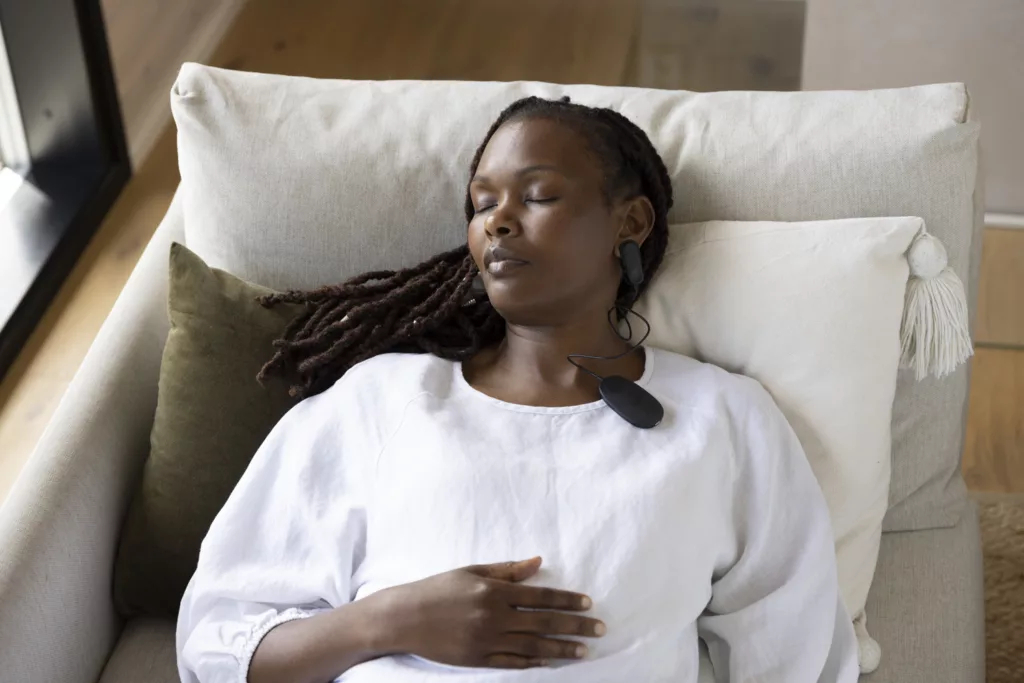Sensitive Content Warning: This blog post is about suicide awareness and prevention.
If in immediate danger, call The National Suicide Prevention Lifeline: 1-800-273-8255
At Meru Health, our CEO Kristian Ranta has always been willing to share his story.
Kristian lost his brother Peter to suicide in 2005 after decades of struggling with depression. “For years, I wondered why he could not be treated effectively and how people like him could be helped in the future, before it’s too late,” says Kristian. Losing his brother—who taught him philosophy and his appreciation for classical music—spurred Kristian into action. He’s has been spreading awareness about suicide ever since.
Even though taboo still keeps many people from openly discussing suicide, the stats are staggering. According to the CDC, the percentage of adults with recent symptoms of an anxiety or a depressive disorder increased from 36.4% to 41.5% during a recent stretch of the pandemic (August 2020–February 2021).1 In the United States, we lost 47,511 people to suicide in 2019—that’s about 14.5 in every 100,000 people.2 Suicide is the second leading cause of death among people between the ages of 10 and 34.3
Kristian’s brother Peter struggled for decades with depression. None of the treatment options available, like antidepressant medications, seemed to help. Kristian founded Meru Health in 2016, with a mission to empower 10 million people suffering from mental health challenges by 2027 — and to ensure that people like Peter get the care and support they need. At Meru Health, we’ve created a clinically proven treatment program for depression, anxiety, and burnout with long-lasting outcomes. It’s always been Kristian’s goal to ensure that using this program not only reduces anxiety and depression symptoms, but also prevents suicide.
Our latest research study (currently under peer-review) suggests that the Meru Health Program has reached that goal. The program is estimated to prevent 1 suicide attempt for every 438 patients it enrolls, and preventing 1 death by suicide for every 5841 patients enrolled. By those estimates, if our results generalized to everyone with a past-year major depressive episode in the United States in 2019, enrollment in Meru Health’s program might have prevented up to 44,194 suicide attempts, and saved up to 3,314 lives.
The program is estimated to prevent 1 suicide attempt for every 438 patients it enrolls, and preventing 1 death by suicide for every 5841 patients enrolled.
Our team at Meru Health is going to keep pushing. As mentioned, the findings about Meru Health Program’s suicide prevention are being peer-reviewed. Earlier this year, we published a study proving that our mobile health program effectively reduces symptoms of severe depression, with long-lasting results. The Meru Health coaching program is intended to help people navigate early signs of depression, anxiety, and burnout, to prevent those symptoms from progressing. Kristian says, “We know Meru Health can save lives and I want to keep any other family from going through what we did. We’ve built an effective, accessible treatment and we’re going to reach as many people as we can.”
By the year 2030, it’s projected that “mental health problems (particularly depression) will be the leading cause of mortality and morbidity globally.”4 This September, during Suicide Prevention Awareness Month, Kristian and our team at Meru Health are continuing to speak openly about depression and suicide, and how we can reach individuals when they need it most with accessible, effective care. As Kristen Routh (PsyD, LMFT) shared, “The big takeaway is that people look at [suicide] as a stigma, like “let’s not talk about it because it might push people to do it.” In fact, the research shows the opposite — the more you talk about it, the more people are open to discuss their struggles.”
When Kristian started opening up about his family’s loss, he says, “Talking about suicide felt like a huge taboo. But when I started sharing my story, I realized how many people had gone through something similar in their own family or community.” We need to follow Kristian’s example of speaking openly about how many of our loved ones are dying by suicide — and how we can reach people earlier on with the quality care and support they need.
If in immediate danger, call suicide hotline
The National Suicide Prevention Lifeline: 1-800-273-8255
The Trevor Lifeline (dedicated to helping LGBTQ+ youth in crisis): 1-866-488-7386
Trans Lifeline (peer support for transgender and questioning people): 1-877-330-6366
Veterans Crisis Line: 1-800-273-8255 and press 1
References:
1 Vahratian A, Blumberg SJ, Terlizzi EP, Schiller JS. Symptoms of Anxiety or Depressive Disorder and Use of Mental Health Care Among Adults During the COVID-19 Pandemic — United States, August 2020–February 2021. MMWR Morb Mortal Wkly Rep 2021;70:490–494. DOI: http://dx.doi.org/10.15585/mmwr.mm7013e2
2 Centers for Disease Control and Prevention. (2021, April 9). Depression. https://www.cdc.gov/nchs/fastats/depression.htm.
3 U.S. Department of Health and Human Services. (n.d.). Suicide. National Institute of Mental Health. https://www.nimh.nih.gov/health/statistics/suicide.
4 Mental health statistics: Global and nationwide costs. Mental Health Foundation. (2020, January 16). https://www.mentalhealth.org.uk/statistics/mental-health-statistics-global-and-nationwide-costs.





